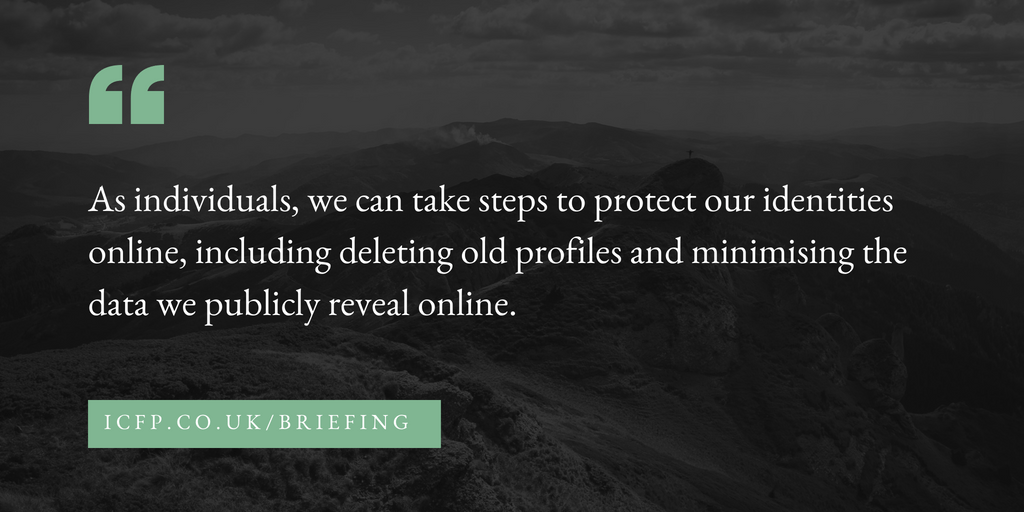In this edition of The Briefing from Informed Choice on Wednesday 20th June 2018 – personal data risk, Bank remit change plan, financial lives survey, and petrol ban proposed.
Subscribe to The Briefing by email
Enable the Amazon Alexa Flash Briefing Skill
Personal data risk
A new collaborative report by Cifas, the UK’s leading fraud prevention service, and Forensic Pathways, an internationally recognised organisation operating at the forefront of digital forensics, highlights that alongside the dark web, the surface web plays an integral role in the selling of personal information. The new research reveals that personal data is being sold on the surface web via forums and is available through online shops, which are accessible via normal search engines. Furthermore, the findings also show that those selling the data give some individuals’ data away for free by using it as an advert to display what information can be purchased.
In a sample of 30,000 victims of identity fraud, almost a third were found on the surface web using name, date of birth, email and/or telephone number, with the majority of those identified on a social media platform. Over two-thirds of individuals were found on Facebook, with 38% on both Facebook and LinkedIn. Individuals aged 61 years and over were found to have a smaller social media presence; they were, however, more likely to have had an account compromised through a data breach.
Sandra Peaston, Director of Insight, Cifas, said:
As individuals, we can take steps to protect our identities online, including deleting old profiles and minimising the data we publicly reveal online. For those who want to promote themselves, either professionally or personally, the real dilemma is whether this promotion outweighs the risks of revealing personal sensitive data.
With identity fraud reaching record levels in recent years, more personal information available online, and increasing numbers of data breaches, the protection of personal data must be viewed as a collective responsibility. Everyone should play their part, from social media platforms taking more responsibility around security settings, to organisations prioritising the security of personal data.
Bank remit change plan
The Labour party has announced plans to change the remit of the Bank of England, targeting productivity growth for the first time. It would be the first change to the remit of the Bank since it gained independence from government in 1997. A focus on productivity growth would be designed to boost the UK economy. In a report published today, Labour is expected to propose a series of measures designed to generate new investment and prevent the British economy from “falling behind” other developed nations.
Shadow Chancellor John McDonnell will say:
We need [a financial system] that helps to deliver enough investment in the high-technology industries and firms so that we can reboot and rebuild Britain.
Under the Tories, we’ve seen more and more investment flowing into property speculation whilst high-tech firms have been starved of the money they need, and research spending has lagged far behind.
Financial lives survey
The Financial Conduct Authority (FCA) has published the latest analysis from its Financial Lives survey. The report puts the spotlight on the financial situation of people across the UK and highlights where in the UK people may be more vulnerable.
It finds notable differences between urban and rural areas. In rural areas, where there is greater reliance on bank branches, a higher proportion of people have difficulty getting to a bank and tend not to be able to use online banking. However, people in rural areas are more likely to be satisfied with their overall financial circumstances. By contrast, people living in urban areas are less likely to be satisfied with their overall financial position, are more likely to use high-cost loans and on average have higher levels of unsecured debt.
Andrew Bailey, FCA Chief Executive, said:
This survey shows just how different the experience of financial services is for consumers across the country. That’s important for us, as we shape financial services policy. But it is also important for firms, as they decide how best to serve their customers.
Petrol ban proposed
City majors from across the country have joined forces to encourage the ban of pure petrol and diesel cars from 2030. The joint initiative is being launched in a bid to cut emissions produced by private transport. City leaders from Bradford, Bristol, Cardiff, London and Oxford, who represent around 20 million people, will propose the ban at a national air quality summit with environment secretary Michael Gove.
Mayor of London Sadiq Khan said:
Air pollution is not an isolated problem, it’s a national health crisis. Our country’s filthy air is shortening lives, damaging lungs and severely impacting on the NHS.
Michael Gove has made a good start as environment secretary, but we need the Government to match our ambition and help us urgently drive forward these improvements. We simply cannot afford to delay.
Informed Choice provides a regular personal finance and investment news summary, with an updated Flash Briefing for your Alexa enabled device. Search for The Briefing from Informed Choice in your Amazon Alexa app or visit https://www.amazon.co.uk/Informed-Choice-Radio/dp/B074DZZ1MF/ to enable this Flash Briefing.


